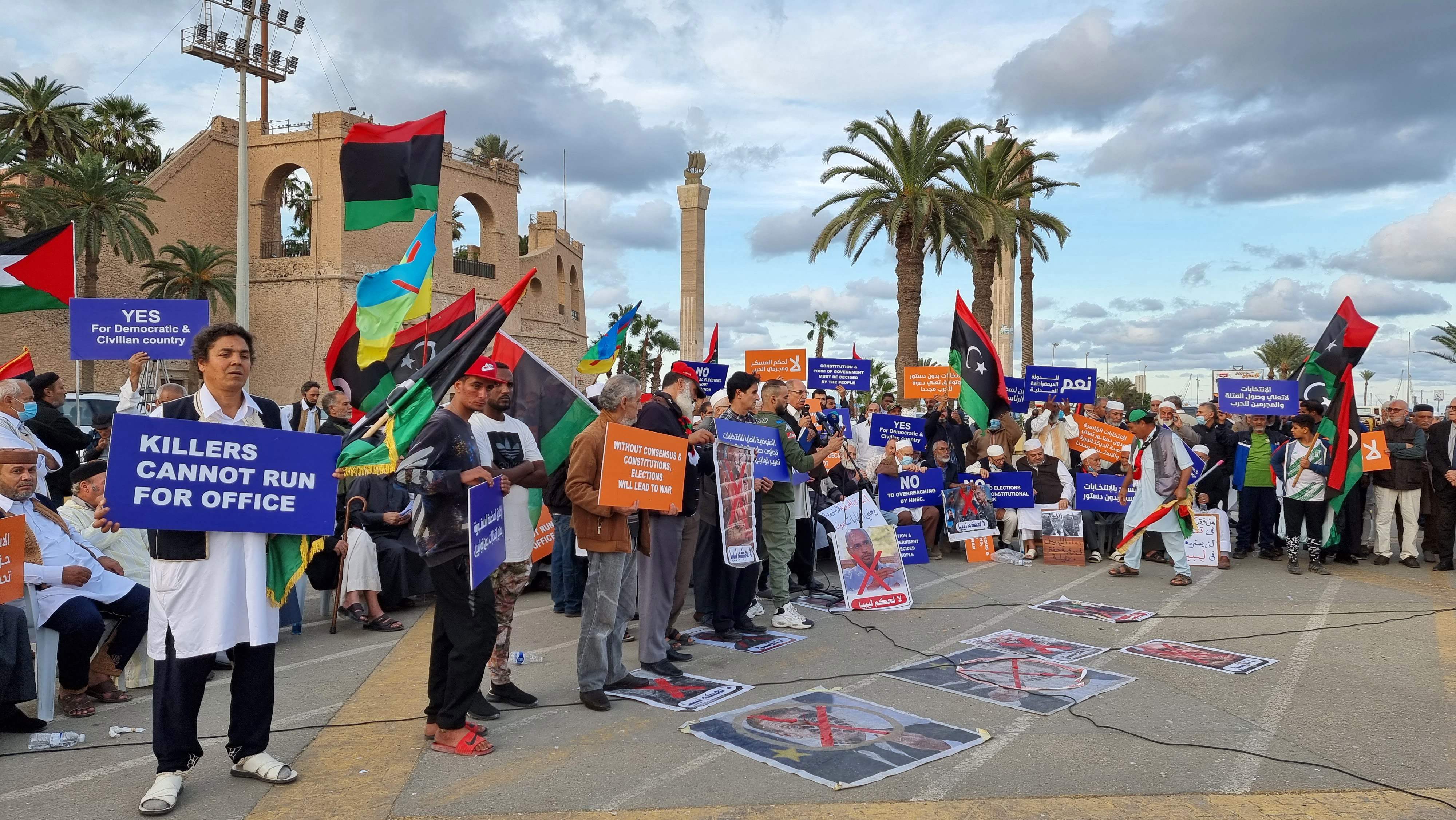Libyan election called off as fears of fresh violence grow
Collapse of the electoral process comes as armed groups have been mobilising in Tripoli

Your support helps us to tell the story
From reproductive rights to climate change to Big Tech, The Independent is on the ground when the story is developing. Whether it's investigating the financials of Elon Musk's pro-Trump PAC or producing our latest documentary, 'The A Word', which shines a light on the American women fighting for reproductive rights, we know how important it is to parse out the facts from the messaging.
At such a critical moment in US history, we need reporters on the ground. Your donation allows us to keep sending journalists to speak to both sides of the story.
The Independent is trusted by Americans across the entire political spectrum. And unlike many other quality news outlets, we choose not to lock Americans out of our reporting and analysis with paywalls. We believe quality journalism should be available to everyone, paid for by those who can afford it.
Your support makes all the difference.Libya’s parliament has said that Friday’s planned presidential election will not go ahead, leaving the internationally backed peace process in chaos and the fate of the interim government in doubt.
The electoral committee’s statement on Wednesday was the first official announcement of a delay, which had been widely expected amid ongoing disputes over the rules of the polls. It did not set a new date for the polls, which had been scheduled for 24 December.
At stake is a peace process that had been seen as the best hope in years of bringing an end to the decade of chaos and violence that has engulfed Libya since a NATO-backed uprising ousted Muammar Gaddafi in 2011.
With major mobilisations in Tripoli and other western areas by armed groups, the collapse of the electoral process risks aggravating local disputes and triggering a new round of violence.
Disputes over the path forward could also undo the wider UN-backed peace process between Libya’s main eastern and western camps that have maintained a ceasefire since last year.
Factions, candidates and foreign powers have been talking behind the scenes about whether an election can still take place with a short delay or whether a longer postponement is necessary to reach agreement on the legal basis of the vote.
UN special adviser Stephanie Williams said on social media she had been meeting members of the political forum that set the electoral process in train last year and reiterated the need for “free, fair and credible elections”.
Meanwhile, the status of the interim government that was installed in March as part of the same peace process is also at risk, with the eastern-based parliament having withdrawn confidence from it in September.
The electoral committee said that the government’s mandate would expire on Friday.
The elections had long been touted as a way to restore order and unity to a nation ravaged by terrorism, divided by war and degraded by economic ruin, but the build-up has been dogged by disagreements over the vote’s legality and eligibility of some of the frontrunners.
However, there was no agreement on the constitutional basis for the election or on the rules among the country’s fragmented political institutions.
In September the speaker of parliament Aguila Saleh, himself a presidential candidate, issued a law that his critics said was not properly passed through the chamber, deviated from the roadmap and was crafted to benefit himself and his allies.
That law, which split the presidential election from a later parliamentary one, formed the basis of the electoral process, although powerful factions and leading candidates rejected it.
With little agreement on the rules, or on who would enforce them or adjudicate disputes, the entry of highly divisive candidates into the presidential race triggered the collapse of the process.
The three most prominent candidates, eastern commander Khalifa Haftar, the son of the former dictator Saif al-Islam Gaddafi and interim Prime Minister Abdulhamid al-Dbeibah, were also the three most divisive.
Haftar was unacceptable to many in western Libya after his 2019-20 assault on Tripoli that smashed parts of the capital. Gaddafi was convicted of war crimes by a Tripoli court and is detested by many of those who fought in the 2011 revolt.
Dbeibah had promised when he was installed as premier that he would not run in an election and his continued work as prime minister in the run-up to the vote led many of his rivals to say he had an unfair advantage
Analysts told The Independent last week that the chaos around the elections could lead to clashes, whether or not the polls actually took place.
Reuters



Join our commenting forum
Join thought-provoking conversations, follow other Independent readers and see their replies
Comments